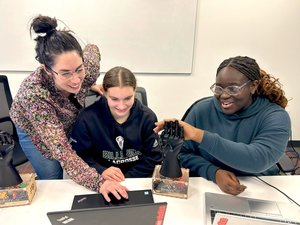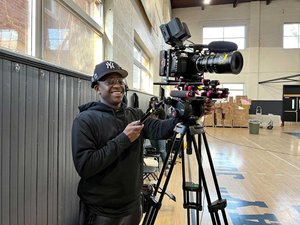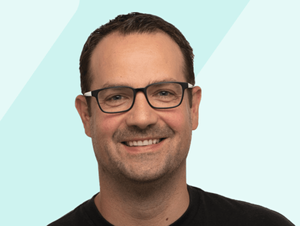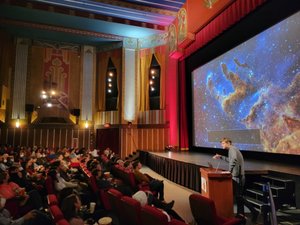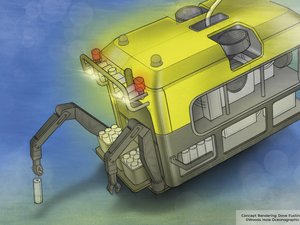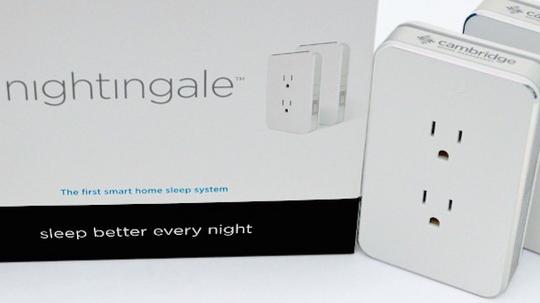
Every year, the Consumer Electronics Show (CES) has people from all over the world flooding Las Vegas to get a glimpse of the latest cutting-edge products. It's like a second Christmas for us folks who are crazy about consumer electronics. And it's going down this week.
My colleague Dylan Martin gave you a list of companies worth noting at CES based on their Massachusetts presence. Now, I'm going to point out the ones you need to check out because of their ties to MIT.
I've put together a list of certain Mass. companies founded by MIT alumni that you'll find at CES this year. Their products range from robotic hands to smart home monitors, and they're all pretty damn cool if you ask me.
BrainRobotics
This Somerville startup was founded by a team of robotic scientists, mechanical engineers and algorithm researchers hailing from Harvard, WPI and MIT. Their mission? To develop a cost-effective, fully functional robotic hand. In doing so, they hope to offer a more affordable solution to improve the quality of life for people in need of a prosthetic hand.
Cambridge Sound Management
Founded in 1999, this Cambridge acoustics and audio tech company recently launched a Kickstarter campaign for Nightingale. This new product is a smart home sleep system that can mask noises so you can sleep better at night. According to Cambridge Sound Management, Nightingale adjusts to suit the acoustics of your home and any sleep conditions you may have.
Formlabs
Somerville-based Formlabs offers a line of professional 3D printers that produce high-resolution, detailed parts. Its newest product is the Form 2, which retails for $3,499. This past summer, the startup announced it had closed a $35 million Series B round led by Foundry Group. The company also shared it had formed a strategic partnership with Autodesk, which also participated in the funding round.
Woobo
Woobo, which is operating out of Central Square, is using robotics and artificial intelligence to make a smart toy (also called Woobo) that serves as a companion for children. As I reported last year, Woobo looks like a fluffy, anime character that's come to life, and it’s outfitted with sensors and other hardware components so it can respond to different physical touches. Woobo is meant to be an educational, entertaining robot friend to users ages three to eight, answering their questions, telling them stories and helping them with their daily routines.
Sense
Sense is a Cambridge startup making smart home energy monitors. With Sense’s monitoring system, users can track power usage across all of the appliances, devices and light sources throughout their houses. They can also keep tabs on individual items within their home. For instance, Sense allows you to check if you left the stove on again. Last fall, the startup announced it had closed $14 million in Series A. The venture arm of Shell led the round.
Mimo
Based in Cambridge, Mimo (aka Rest Devices) has developed smart baby monitors that track infants' movements and breathing monitors. Mimo's monitors can also integrate with Nest’s thermostat and security camera products. In 2013, the startup raised a $1.3 million seed round.
Mapwize
Mapwize has a presence in France, as well as one in downtown Boston. The venture has developed an indoor mapping platform for buildings. It allows places to contribute to an indoor GPS for visitors trying to find their way around their buildings. With Mapwize, developments are able to pin where shops, products, rooms, equipment and areas of interest are located on the premises, while visitors can search across multiple floors and buildings to figure out where to go.
Quell by NeuroMetrix
NeuroMetrix (NASDAQ: NURO) spun out of MIT spin-off in 1996. Now, the Waltham company is offering Quell, a wearable meant to relieve chronic pain without the use of drugs. Quell rests on users' upper calves, stimulating sensory nerves. As a result, the brain can block pain signals throughout the body and stop aches from persisting. The device comes with an app that lets people track and manage their pain.
